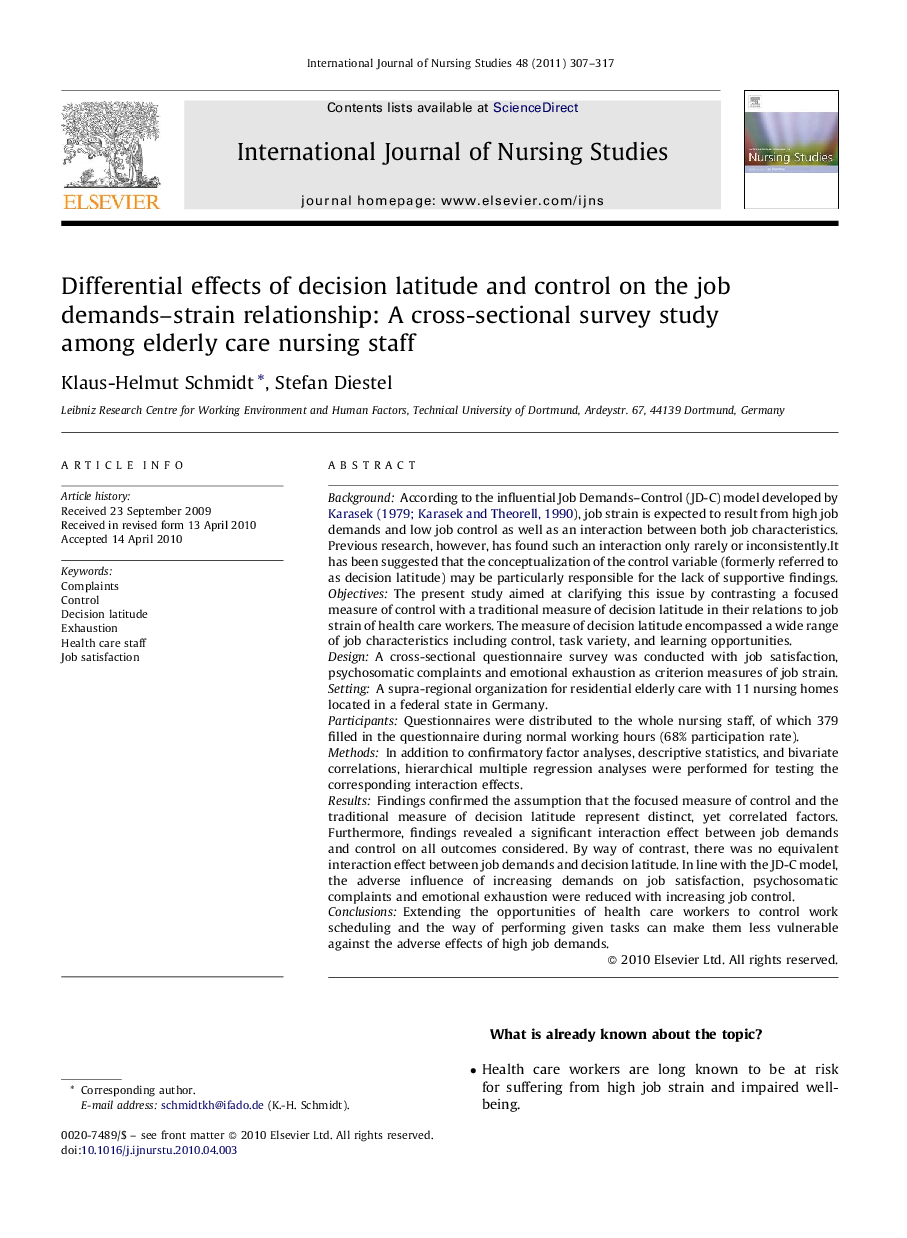| کد مقاله | کد نشریه | سال انتشار | مقاله انگلیسی | نسخه تمام متن |
|---|---|---|---|---|
| 1077418 | 1486574 | 2011 | 11 صفحه PDF | دانلود رایگان |

BackgroundAccording to the influential Job Demands–Control (JD-C) model developed by Karasek, 1979 and Karasek and Theorell, 1990), job strain is expected to result from high job demands and low job control as well as an interaction between both job characteristics. Previous research, however, has found such an interaction only rarely or inconsistently.It has been suggested that the conceptualization of the control variable (formerly referred to as decision latitude) may be particularly responsible for the lack of supportive findings.ObjectivesThe present study aimed at clarifying this issue by contrasting a focused measure of control with a traditional measure of decision latitude in their relations to job strain of health care workers. The measure of decision latitude encompassed a wide range of job characteristics including control, task variety, and learning opportunities.DesignA cross-sectional questionnaire survey was conducted with job satisfaction, psychosomatic complaints and emotional exhaustion as criterion measures of job strain.SettingA supra-regional organization for residential elderly care with 11 nursing homes located in a federal state in Germany.ParticipantsQuestionnaires were distributed to the whole nursing staff, of which 379 filled in the questionnaire during normal working hours (68% participation rate).MethodsIn addition to confirmatory factor analyses, descriptive statistics, and bivariate correlations, hierarchical multiple regression analyses were performed for testing the corresponding interaction effects.ResultsFindings confirmed the assumption that the focused measure of control and the traditional measure of decision latitude represent distinct, yet correlated factors. Furthermore, findings revealed a significant interaction effect between job demands and control on all outcomes considered. By way of contrast, there was no equivalent interaction effect between job demands and decision latitude. In line with the JD-C model, the adverse influence of increasing demands on job satisfaction, psychosomatic complaints and emotional exhaustion were reduced with increasing job control.ConclusionsExtending the opportunities of health care workers to control work scheduling and the way of performing given tasks can make them less vulnerable against the adverse effects of high job demands.
Journal: International Journal of Nursing Studies - Volume 48, Issue 3, March 2011, Pages 307–317